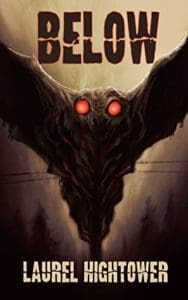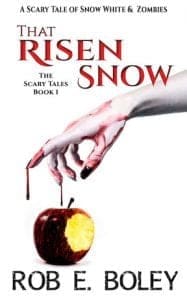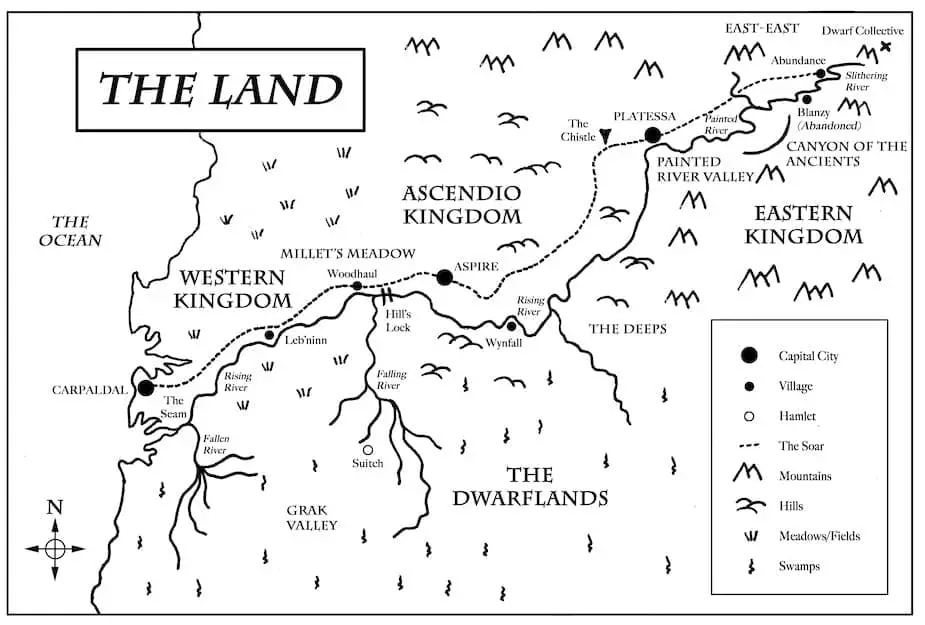
The plague doctor is working at his desk, inventing a cure for bubonic plague. The atmosphere of mysticism. Historical reenactment. Halloween.
Maintaining a consistent writing habit can be hard enough, but the pressures of a worldwide pandemic, a looming recession, and shelter-in-place orders can make writing feel impossible. Since this whole mess broke out, I’ve heard from multiple author friends that they’re having difficulties focusing on their writing, keeping their spirits up, or finding the motivation to conjure stories.
So, below are a few tips for writers during these trying times. Every writer is unique and few pieces of writing advice apply universally, but hopefully at least one of them will resonate with you and your own circumstances.
Achieve Wordy Goals
I’m a huge advocate of having metric-style goals for writing, whether those goals are set on a daily, weekly, or monthly basis. I prefer to write every day, and so I have daily goals. My wife is a full-time writer, so she takes the weekends off and tends to use weekly goals.
When setting goals, I’d urge you to make goals related to words or pages, not just time. In other words, don’t say “I’m going to write for 30 minutes every day.” Instead say, “I’m going to write 500 words per day.” It’s too easy to get distracted while writing, especially now when there is so much stressful news happening at the local, national, and global level. If you set your goals based on output, not time, then you’re less likely to fall prey to all the distractions.
To do this, start tracking exactly how much writing you can do in an hour. Track this over the course of a week to make sure you have an accurate average. Then set achievable goals that you can achieve each day. Do this not just for writing, but also for all stages of the writing process, such as editing, copyediting, and final read-throughs.
Engage in Rituals, not Routines
We’re stuck at home. Our news feeds grow more ominous every day. We haven’t seen friends and family in days or weeks. One day bleeds into the next into the next and so on. Now more than ever it’s important to carve out time for our daily writing time. Except don’t simply make it another thing to do—make it the thing to do. I’m talking about the difference between routine and ritual.
For me, my ritual begins in the early morning hours before anyone else is awake in my home. I wake up and make myself an obscenely strong cup of coffee. While it’s percolating, I feed the cats. Once I have my coffee, I practice tai chi to wake up my body and then read a poem to get in the writing mood. I subscribe to three different daily poem email lists, so I always have a poem on-hand. After practicing my tai chi and reading my poetry, I sip my coffee and begin.
Remember that Stories Matter
I get it. I do. The world feels like it’s falling apart. People are dying. Healthcare systems are breaking. Economies are faltering. In the midst of all this, what the hell is the point of writing a tale about a werewolf chiropractor trying to hunt down a serial killer magician? Plenty.
People needs stories. They need fantasy worlds in which they can immerse to find shelter from the real world. Now more than ever, we need literary escape. Beyond that, we need stories that show us how to conquer fears and anxieties, how to be a hero, or how to visit the grocery store and not fill our carts with the last five cases of toilet paper.
Tips from Other Authors
In closing, I tagged some writer friends on Facebook while writing this article, asking them to share their advice, experiences, and tips on how to keep writing during these uncertain times. The responses were as varied, thoughtful, and helpful as you could want. Rather than summarize them, I’ll take the lazy way out and simply copy them below . . .
“My best advice is to go easy on yourself, take breaks when you need to, eat well, and only check news once a day, and take social media breaks. Reach out to your writer friends, virtual happy hours/coffee meet ups via Zoom are fun. If you have kids at home know that you will most likely not be as productive and that you may have to barter for writing time with your spouse/partner if you’re both working at home. Get outside for at least 30 minutes a day weather permitting. Exercise/walk, take care of yourself.”
– Brenda Murphy (https://www.brendalmurphy.com/)
“Writing right now. Both kids are engrossed in screens, I still haven’t made dinner (8 pm here), and I’m a tad stir crazy, but I’ve got 2100 words down. This may not be at all helpful.
“Edit: 2800 words.”
– Ken MacGregor (http://ken-macgregor.com/)
“So, I’ve been home for almost 2 weeks now and there’ve been times where it’s hard to focus, but honestly keeping a routine has been great. At least for me. Getting up at the same time and yes, getting dressed in real clothes even if you end up transforming back into pajama bottoms. Try to stay away from the social media. If you can’t resist the urge, post sparingly or scroll sparingly. It can drain you. I tried to post updates to my writing, but not frequently. And always work on something, and I can’t stress this enough: write. Write something. Inspiration will find you when you’re least expecting it to and sometimes those are the best moments.”
– Maxwell Ian Gold (https://thewellsoftheweird.com/)
“I think that whenever there’s a time of high emotion, we ought to be able to channel it into the work. If you’re a full time writer, though it’s easy to become creatively paralyzed by all the tension in the air, you should also thank your lucky stars that, in theory at least, the self-quarantining and such really doesn’t have to prevent you from continuing to work.”
– Hal Bodner (http://www.wehovampire.com/
“My advice: Don’t. I’m in a constant state of low-key anxiety, even when I don’t consciously feel stressed, and pressuring myself to hit a certain word or page count not only wouldn’t help my general state, but would impact the quality of the writing.
“Of course, that doesn’t matter if you have a deadline. And, even though I say that and have mostly been sticking to it, I also took a few days and wrote a pilot I’ve been sketching out for years. Writing it was therapeutic, as writing often can be. It took my mind off things, let me have a little fun, and gave me a much needed feeling of accomplishment. But even though I’ve got a dozen other projects I could jump right into writing, I’m not pushing myself or adding stress to my day. I’ll take a few days off as needed and jump into something else.
“But I definitely wouldn’t have been able to write what I had if I hadn’t taken some time before hand to decompress as much as possible. While the motivational ‘Shakespeare wrote King Lear during quarantine’ advice may work for some, there’s no shame in not doing so. These are strange times indeed and taking care of yourself and your family should always take precedence over writing.”
– Brad Hodson (https://brad-hodson.com/)
“I’m not doing much writing at the moment. Too much generalized anxiety. Instead, I’m heavily focusing on research and idea creation for an upcoming novel. The research uses a different part of my brain and I can focus.”
– Craig DiLouie (https://craigdilouie.com/)
“It is hard to stay away from anything that can give you the news or latest update. It takes a lot but once you can break that habit and focus on something that makes you happy you will notice a decrease in anxiety. Also don’t overdo the coffee. I am an essential medical worker in a hospital with +cases and low on supplies. I had to take my own advice. Focusing on my patients really helps.
“For me cat pics, memes, and videos helped. And sleep. Don’t forget to sleep.”
– Cathleen Marshall (Twitter: @radcat38)
“At the time of writing, 25 March 2020, New Zealand has just entered a four-week national lock down, possibly longer. Already, I’ve been isolation for ten days as my husband recently returning from some international travel. We both work from home in a shared office, so sheltering in place looks much like our usual work week, but my anxiety has spiked out of concern for family and friends, and I have struggled to write. I’ve been more distracted will-o-the-wisp puttering over the sand than knee-deep committed writer. However, I believe creatives have an important role in recording and reflecting this pandemic, so while I am distracted, I have taken to writing spur of the moment haiku to capture head-of-a-pin observations about this unprecedented time, which I may or may not refer to later in my work. These tiny, concentrated, almost subversive moments of creativity have helped to ease my anxiety a little. I’ve even managed to have five of them accepted for publication. On the other hand, my mentees ‒ I currently have six ‒ with time on their hands, have ramped up their writing, which means my in-box is overflowing with dark and twisted manuscripts needing my attention. Add to that, the four requests for cover blurbs, a fantastic commissioned work to edit, an anthology I’m curating, and even a book club recommendation, this isolation has me consuming more stories than ever. It’s the silver lining of the apocalypse, this opportunity to escape into stories, convincing me of the vital role of writers and writing to the wellbeing of our communities.”
– Lee Murray (www.leemurray.info)
A Final Note for the Parents
Many of you are trying to write while having kids at home (or maybe just partners who act like kids). It’s hard to be a dad or mom while also a writer and whatever other profession you might be juggling at the same time. It’s hard, but not impossible. Your writing has to adapt to the kids’ schedules.
When my daughter was an infant, that meant I wrote at night when she first went to bed or in the afternoon when she was down for her nap. As she aged out of naps and started staying up later, I decided that being a dad and a writer didn’t have to be mutually exclusive. We actually started “writing” together at the kitchen table some afternoons and evenings. I’d work on stories and books, and she’d work on poems and fun lil’ essays. Or sometimes she’d draw. Really, she could do whatever she pleased so long as she did it quietly.
Looking back, those moments working together—yet apart—with my daughter are treasured memories. We may not have been engaging with each other, but we were still together.
And right now, we are all in this together, folks. The pandemic make be keeping us physically apart, but it doesn’t have to separate us socially or emotionally. That’s the beauty of writing and the joy of being a writer—we can forge and nurture exceedingly strong bonds from moments of profound isolation.
So with that—write on, friends!
Rob



 Laurel Hightower is a horror lover, legal nerd, and mom. Today, she is opening up to the art of crafting novellas and her most recent release ‘Below’ which was released in March of 2022. The synopsis describes it as “While driving through the mountains of West Virginia during a late-night snowstorm, a recently divorced woman experiences bizarre electrical problems, leaving her with little choice but to place her trust with a charismatic truck driver. But when an unexplainable creature with haunting red eyes gets between them, she is forced to make one of the toughest decisions of her life. Will she abandon the stranger who kept her safe—or will she climb down below, where reality has shapeshifted into a living nightmare?” Let’s dive into the interview!
Laurel Hightower is a horror lover, legal nerd, and mom. Today, she is opening up to the art of crafting novellas and her most recent release ‘Below’ which was released in March of 2022. The synopsis describes it as “While driving through the mountains of West Virginia during a late-night snowstorm, a recently divorced woman experiences bizarre electrical problems, leaving her with little choice but to place her trust with a charismatic truck driver. But when an unexplainable creature with haunting red eyes gets between them, she is forced to make one of the toughest decisions of her life. Will she abandon the stranger who kept her safe—or will she climb down below, where reality has shapeshifted into a living nightmare?” Let’s dive into the interview!
 How Can Writers Vary Sentence Structure?
How Can Writers Vary Sentence Structure?












